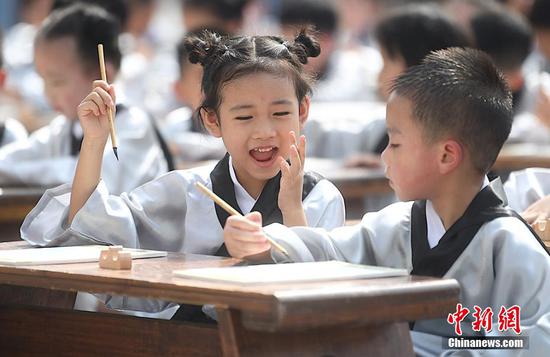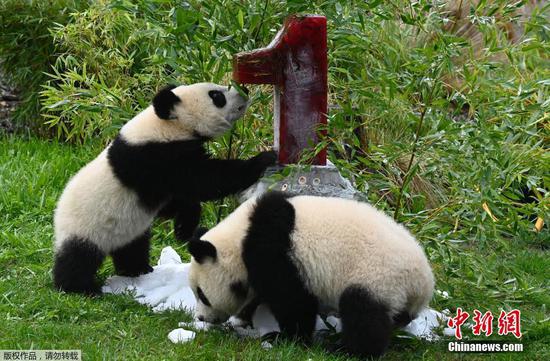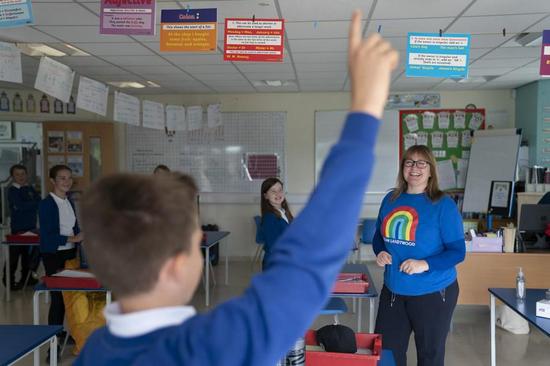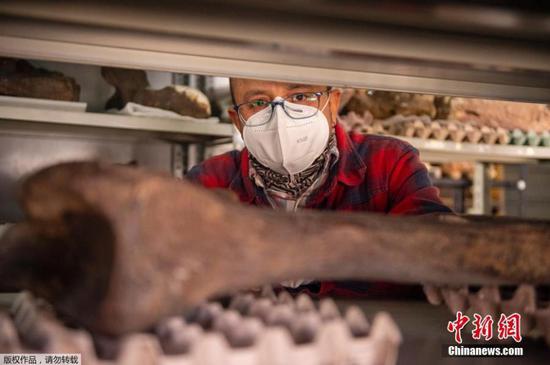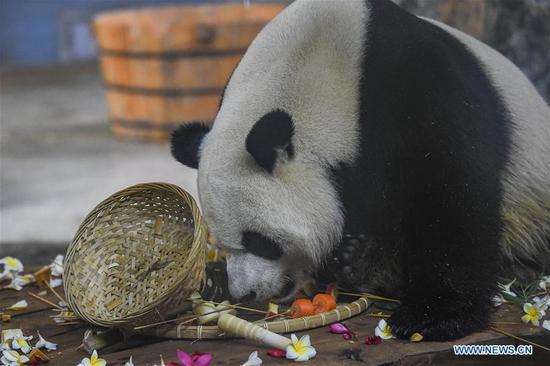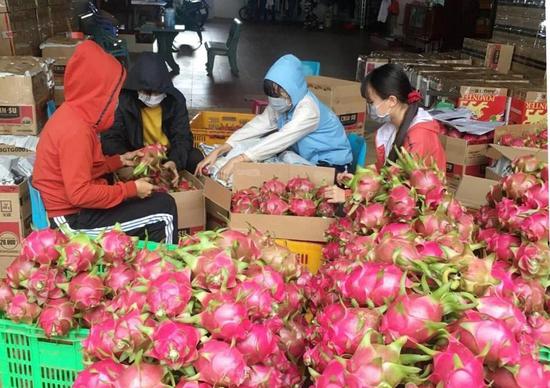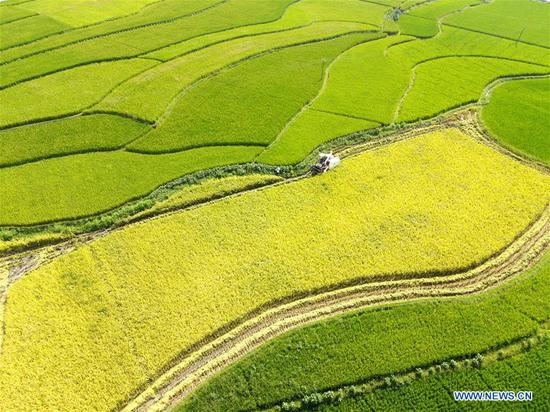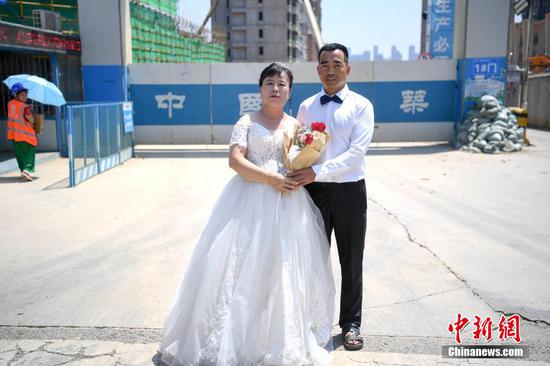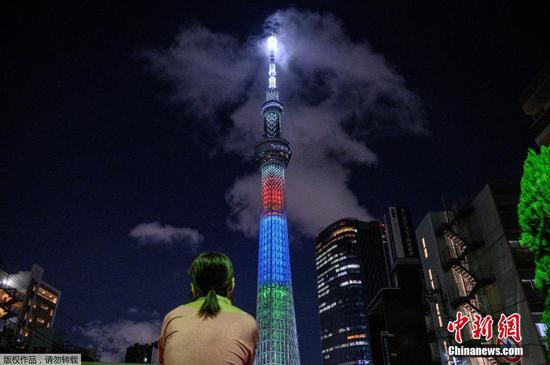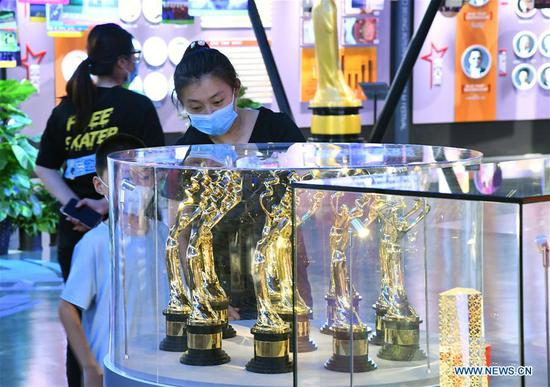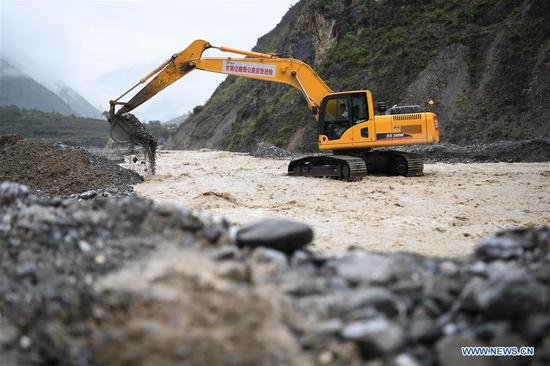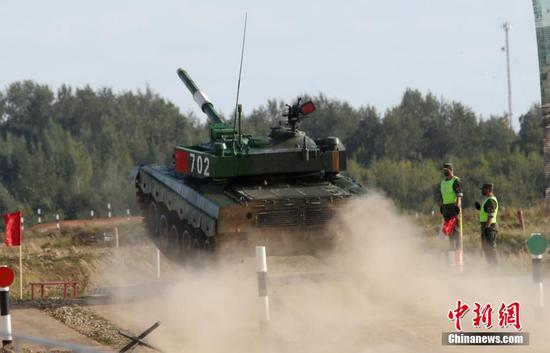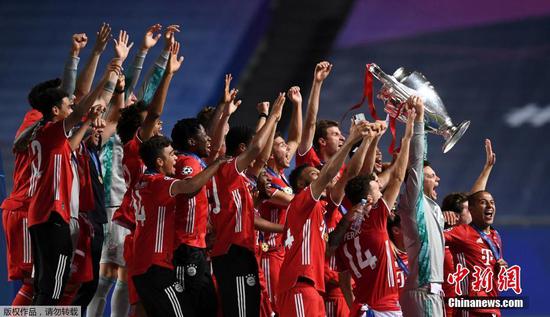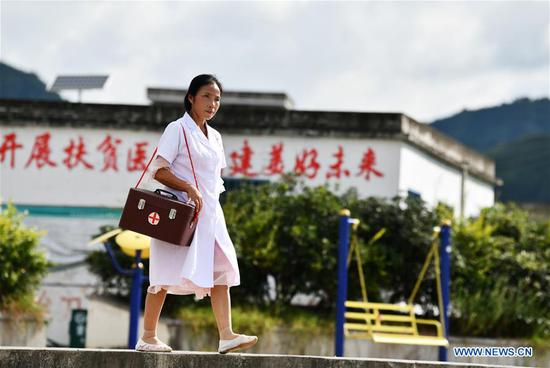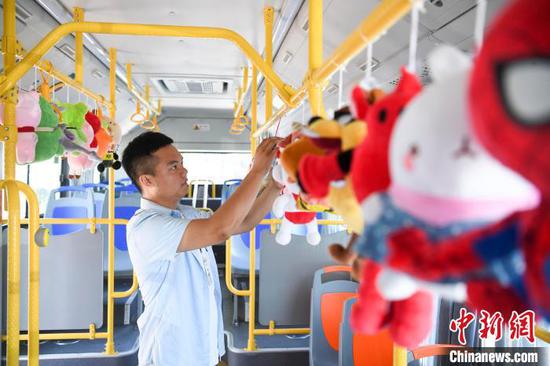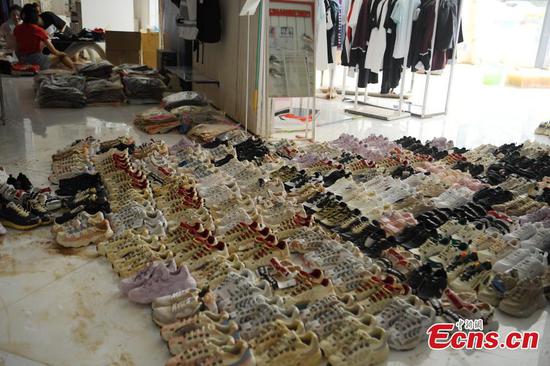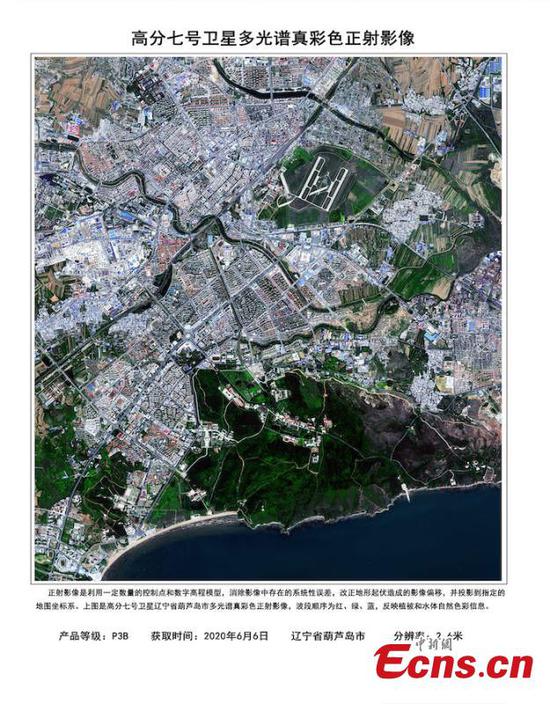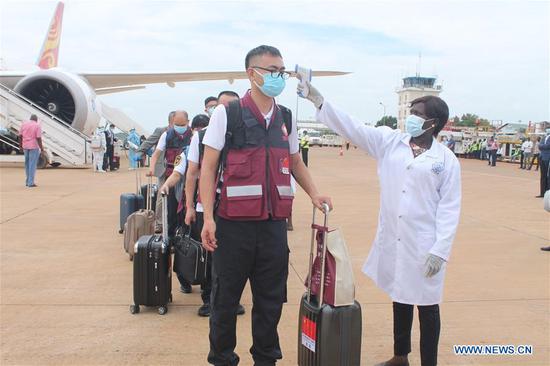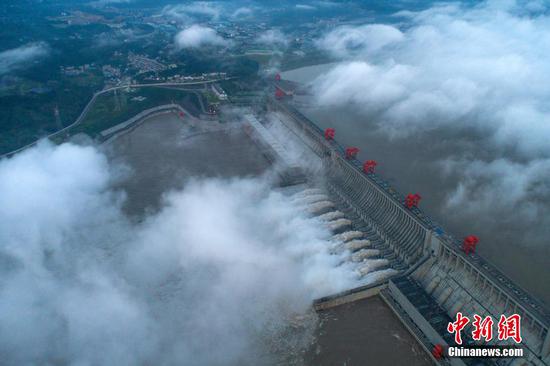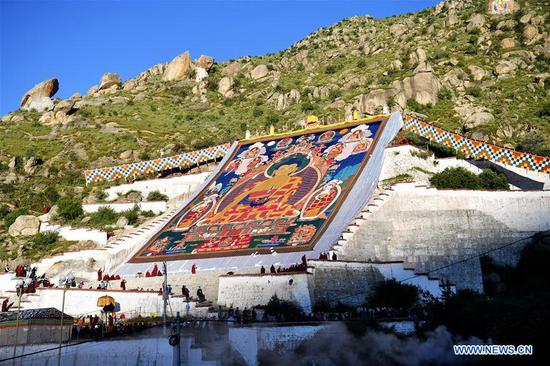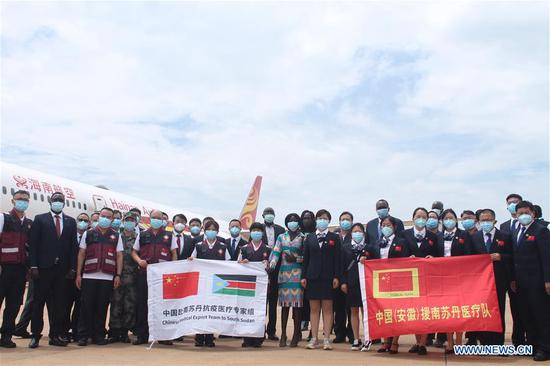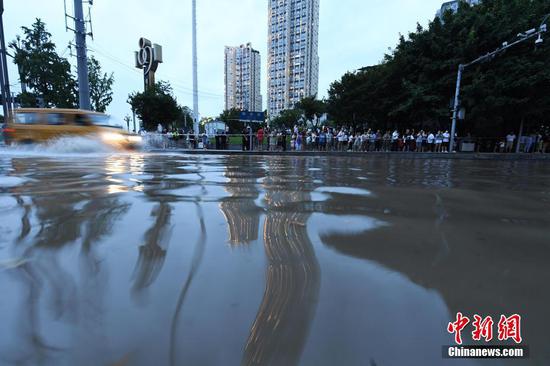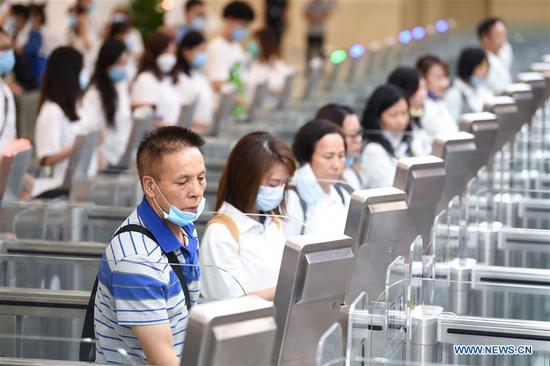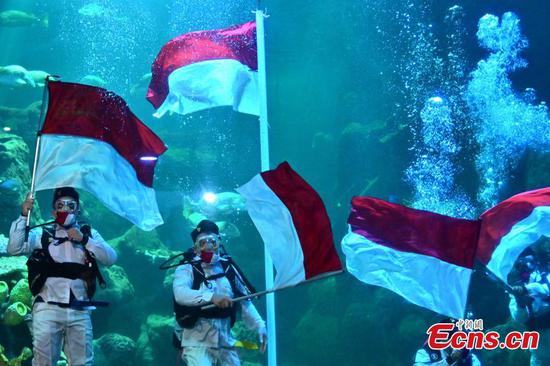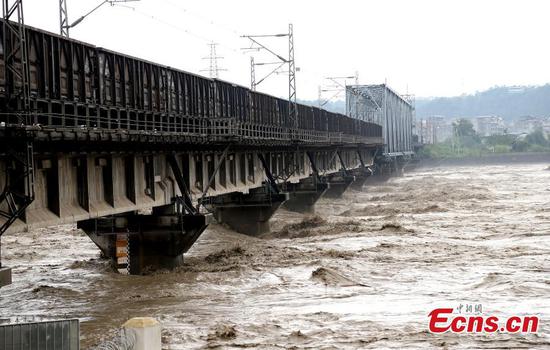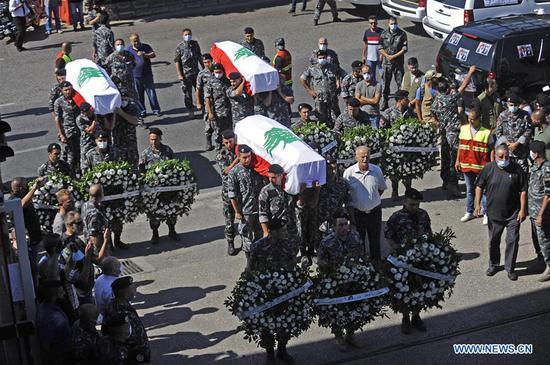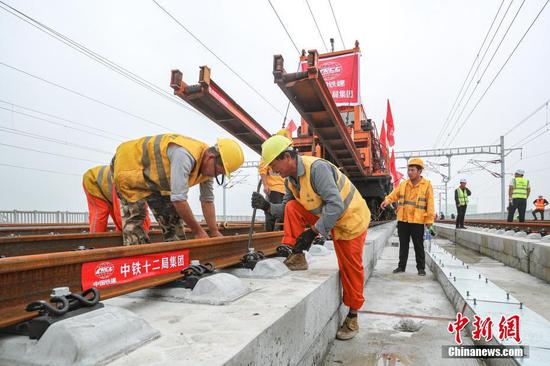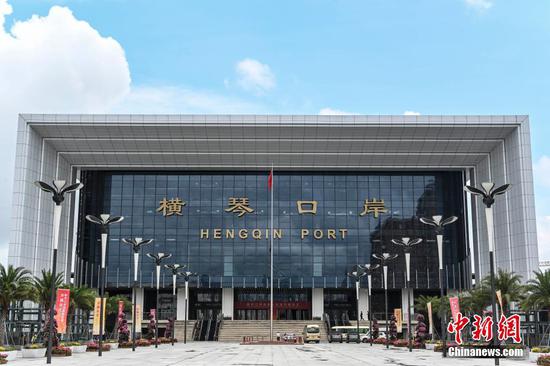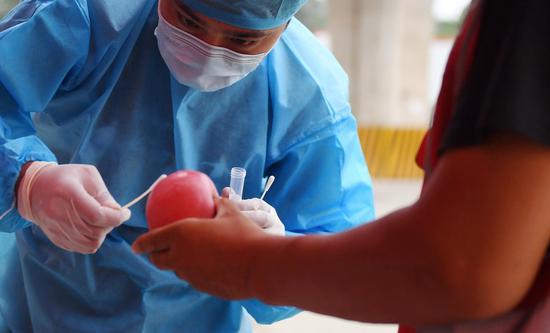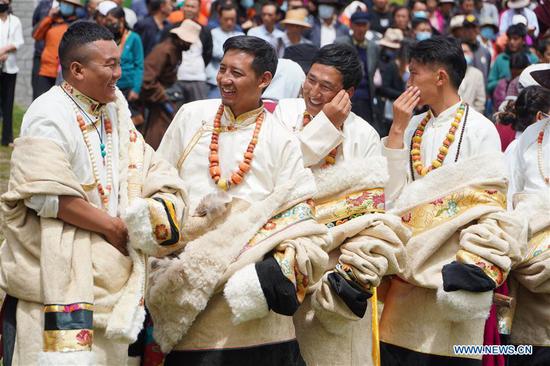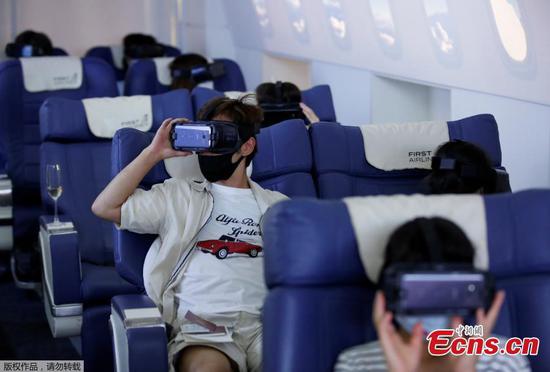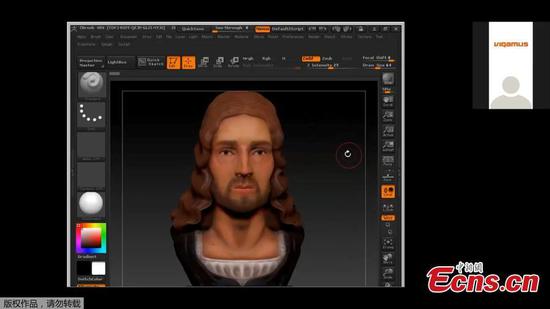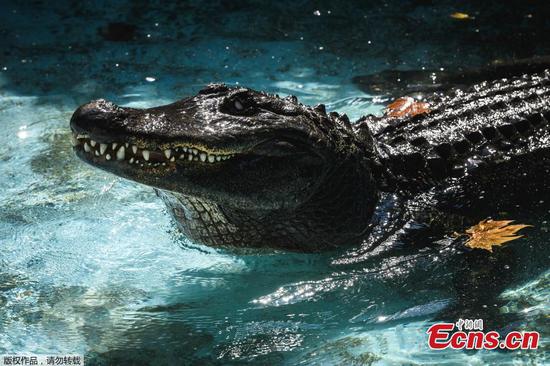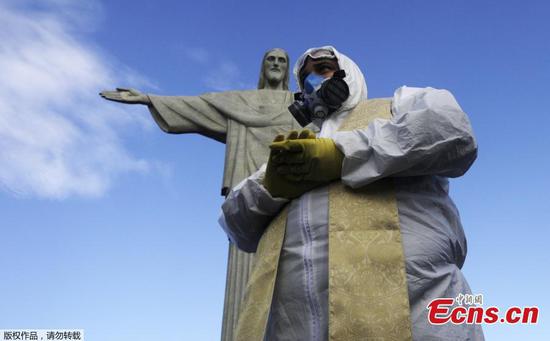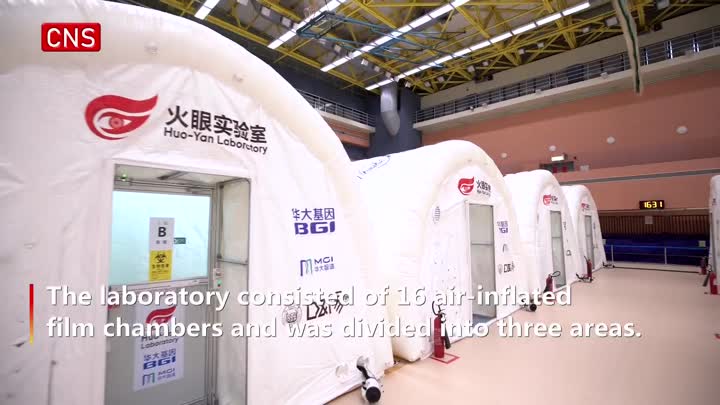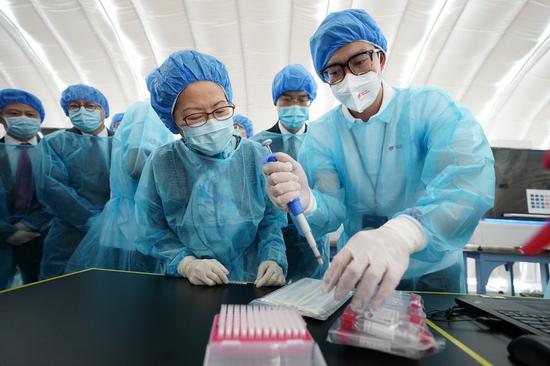
Chief Executive of the Hong Kong Special Administrative Region (HKSAR) Carrie Lam visits the Fire Eye Laboratory at Sun Yat Sen Memorial Park Sports Center in Hong Kong, China, Aug. 28, 2020. (Xinhua/Lui Siu Wai)
Hong Kong launched its massive screening program on Tuesday to help curb the spread of COVID-19 and restore the normal lives of residents.
From temperature checks to sample collection, it took Lee merely 10 minutes to finish the testing on Tuesday morning at a testing station in Sai Wan Ho Sports Center.
"Of course people should take the test. The more people join the program, the more asymptomatic patients will be identified," Lee said.
Lee was among some 82,000 people who had been tested by 5:00 p.m. local time under the Universal Community Testing Program (UCTP) initiated by the Hong Kong Special Administrative Region (HKSAR) government, which has seen preregistration of over 650,000. The voluntary, free testing will last for seven days and can be prolonged to no more than two weeks.
Chief Executive of the HKSAR Carrie Lam urged the public to actively join UCTP at a press briefing ahead of an Executive Council meeting on Tuesday morning.
After getting tested herself, Lam described the sample collection process as simple, safe and fast.
A total of 141 community testing centers have been put into operation across Hong Kong. Among participants on the first day, public health experts Gabriel Leung and David Hui took the virus tests at Yuen Wo Road Sports Center in Sha Tin.
To ensure a smooth program, the HKSAR government has mobilized some 4,000 civil servants to provide assistance, and nearly 6,000 medical workers have also volunteered to help.
The samples will be sent to the Fire Eye Laboratory at Sun Yat Sen Memorial Park Sports Center that is capable of dealing with at least 300,000 samples a day.
A Hong Kong resident surnamed Wong said she did not worry about privacy leakage as the government has adopted enough precautions. The HKSAR government has said the personal information of participants will not be transferred out of Hong Kong and will be eliminated in a month after the program ends.
"Taking the test is responsible for both me and other people," Wong said.
At the press briefing, Lam explained the necessity of mass testing as nearly a quarter of the confirmed cases in Hong Kong involved asymptomatic patients, appealing to the public to view the testing program objectively and give it the greatest support.
As Hong Kong has paid a huge price with travel restrictions and closures of commercial premises, the testing program will help fight the epidemic and restore economic and social activities, she said.
Chen Dong, deputy director of the Liaison Office of the Central People's Government in the HKSAR, took the test along with other staff members of the liaison office on Tuesday. He said universal testing has proved to be an effective means to cut the transmission chain according to the anti-epidemic experience of both the mainland and overseas.
Tung Chee-hwa, vice chairman of the National Committee of the Chinese People's Political Consultative Conference, also took the test on Tuesday morning and urged more people to participate in the program for the benefit of Hong Kong.
The UCTP received tremendous support from the central government. New labs were built and mainland medical professionals were sent here to boost Hong Kong's testing capacity. More than 220 members of mainland medical support teams are working in Hong Kong.
Hong Kong witnessed a resurgence of COVID-19 cases from early July and the situation has eased recently after a series of control measures by the HKSAR government. Hong Kong reported 12 new cases Tuesday, with nine local infections, bringing the total confirmed cases to 4,822.









